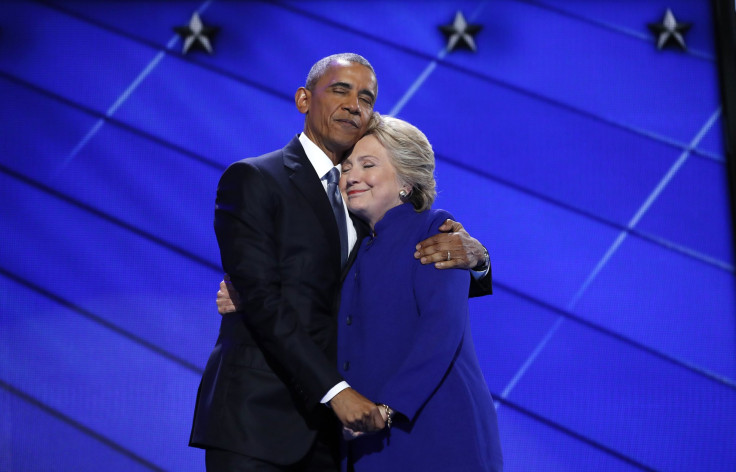Hillary Clinton's 'Fight Song' Dragged By Twitter: Why People Hate The DNC Anthem

The reviews are in: The 2016 Democratic National Convention was a rousing success, with even many conservatives acknowledging the powerful display of optimism and unity. But "Fight Song," the DNC's unofficial anthem, was not as well received.
On night two of the DNC, actress Elizabeth Banks introduced a video she produced of dozens of celebrities singing an a cappella cover of Rachel Platten's 2015 hit "Fight Song," a tune Clinton has also been using at campaign events. The video, inspired by the a cappella comedy "Pitch Perfect 2," which Banks directed, helped make "Fight Song" the unofficial theme song of the convention. The original version played dozens of times between speakers and again, prominently, after Hillary Clinton finished her historic acceptance speech Thursday night. But if "Fight Song" helped bolster the Democratic Party's message of unity, it was only because so many people were united in their scorn.
The song was dragged on social media as viewers and convention-goers alike complained about everything from the self-congratulatory tone of Banks' video, to the pandering message of the song, to the DNC's decision to play it so often.
"Fight Song" made me want to stab myself in the eye *before* DNC started.
— Michelle Malkin (@michellemalkin) July 29, 2016
Now it makes me want to stab everyone else in the eye.
"Fight Song" is the National Anthem now, right?
— James Poniewozik (@poniewozik) July 29, 2016
"Fight Song" is overwrought, self-congratulatory steaming crap.
— Ben Shapiro (@benshapiro) July 28, 2016
i would rather live without music than have fight song as the only option
— Gideon Resnick (@GideonResnick) July 28, 2016
The problem, as some pundits on social media pointed out, is that both the video and the song reinforce some of the more unappealing qualities some see in Clinton. The former Secretary of State is often accused of being inauthentic and disingenuous — there was a reason many saw former President Bill Clinton's convention speech as an attempt to "humanize" his wife. "Fight Song," a non-political pop ballad by a young white singer, is a safe and arguably bland choice for an anthem. This is understandable, as Clinton would not want to risk offending any potential voters. But the result is a stale product from a candidate often accused of being too boring.
As for the video, while the numerous celebrities used seems on paper to be a winning strategy, it also has the capability of coming off as contrived, an insincere attempt to curry favor with youth voters. This is not the first time Clinton has cozied up to celebrities or embraced a piece of pop culture — she famously danced the "Nae Nae" with talk show host Ellen DeGeneres and has appeared as herself on "Saturday Night Live — but those attempts were criticized by many as examples of her pandering to voters.
Though Clinton has been using "Fight Song" for months, the convention was the first exposure for many of how linked the song and the campaign have become. Then the convention went and overplayed the song, which made almost no one happy. The song has inspired editorials from major outlets begging the convention all week to stop playing it, an alternative playlist from Time magazine and parodies of Banks' video from the likes of "Late Show" host Stephen Colbert.
Clinton made history becoming the first female presidential candidate from a major political party. Going forward, she might be better off letting "Fight Song" become ancient history.
© Copyright IBTimes 2025. All rights reserved.






















